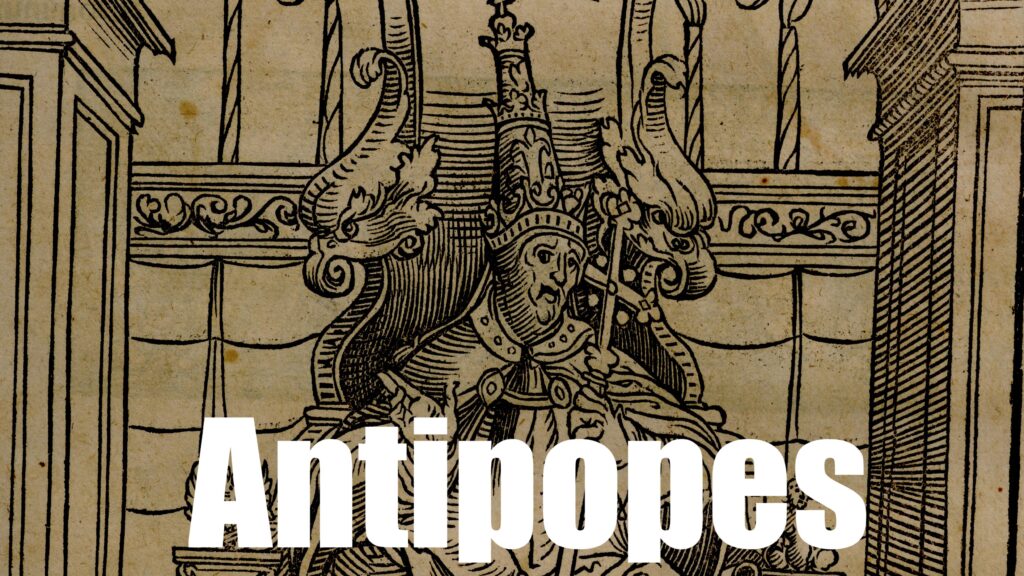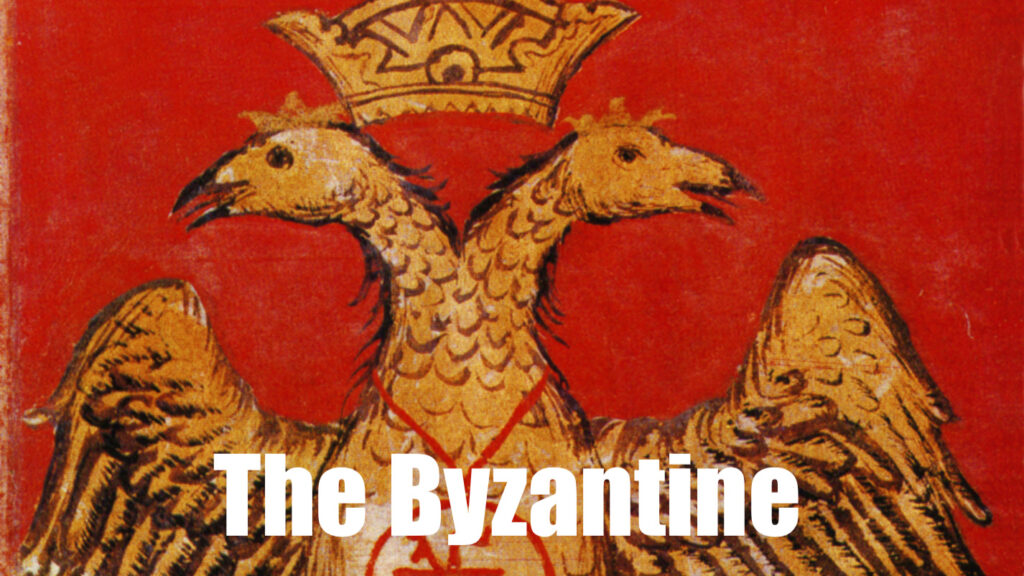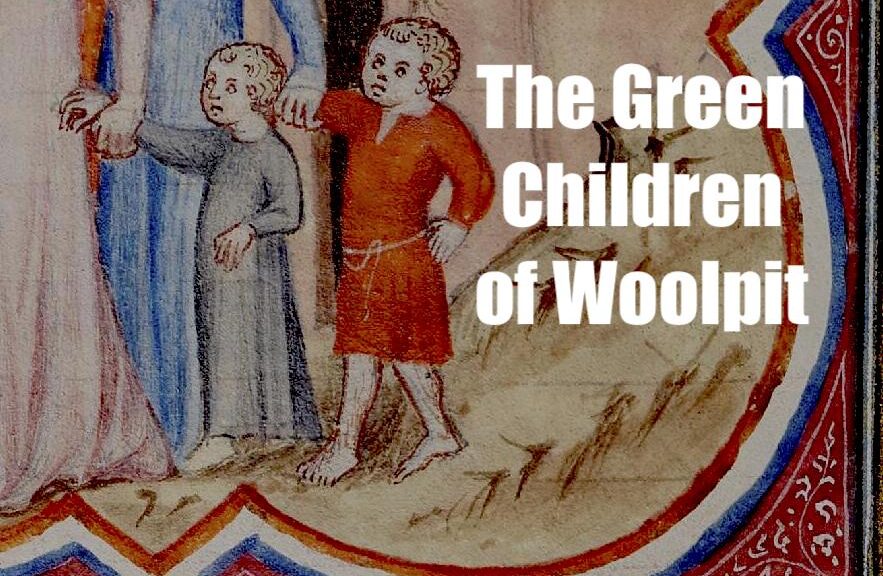The Moral Purpose of the Medieval State
Explore how medieval thinkers from Augustine to Aquinas debated the role of government, from preserving peace and order to promoting virtue and human fulfillment in the pursuit of the common good.
New Medieval Books: Robert de Vere, Earl of Oxford and Duke of Ireland (1362-1392)
This biography re-examines the life of Robert de Vere, the English nobleman best known as a childhood friend of Richard II. It investigates whether he truly deserved the reputation of a shameless sycophant that medieval chroniclers gave him.
Royal Women of Sweden with Caroline Wilhelmsson
This week on The Medieval Podcast, Danièle speaks with Caroline Wilhelmsson about the royal women of Sweden, how they became queens, and how they exercised their power.
The Role of Saints in Canterbury Cathedral
Discover how saints shaped medieval religious life, pilgrimage, and power through the story of Canterbury Cathedral and the shrine of Thomas Becket, one of the most important cult sites in medieval England.
New Medieval Books: Hiding in Caverns Formed from Old Roots
Yu Xuanji is celebrated as the greatest female poet of the Tang Dynasty. This book presents the original Chinese texts alongside English translations of her surviving poems, as well as selected writings that illuminate her extraordinary life.
Tupac Could Have Been a Viking
Discover the striking parallels between Viking warriors and 1990s gangsta rappers in this thought-provoking article exploring shared values of honour, violence, reputation, and poetic legacy across two seemingly distant cultures.
The Cadaver Synod: The Trial of a Dead Pope
In 897, Pope Stephen VI exhumed his predecessor and put him on trial. Known as the Cadaver Synod, this bizarre episode in Church history was more than madness—new research reveals it was a political and religious power play.
Top 10 Antipopes
Discover the stories of ten historical figures who claimed the papacy but were later declared antipopes. From Hippolytus of Rome to Felix V, explore the rivalries, scandals, and political power struggles that shaped medieval Church history.
The Hidden Financiers: Women’s Role in Medieval Commerce
Discover how medieval women—noblewomen, abbesses, and merchants—played vital roles in managing estates, running businesses, and shaping the economic life of the Middle Ages.
The Medieval Invention of Political Community
Discover how medieval thinkers reshaped the concept of political community using ideas from Roman law, Christian theology, and Aristotelian philosophy—laying the intellectual foundations for the modern state.
10 Medieval Studies’ Articles Published Last Month
What’s new in medieval studies? Here are ten open-access articles published in April, which range from a new look at Richard III to dog tricks in Byzantium.
Violence, Wine, and Everyday Life: Crime in the Taverns of Medieval Dubrovnik
A look into tavern life in late medieval Dubrovnik reveals a world of wine, violence, and everyday crime, drawn from court records and social patterns.
Frederick Barbarossa with Graham Loud
This week on The Medieval Podcast, Danièle speaks with Graham Loud about how Barbarossa came to power, how he managed to reign supreme in both Germany and Italy despite some bumps along the way, and why he’s sometimes revered as a once and future king in Germany.
The Double-Headed Eagle in Byzantium: Myths and Realities
It’s a familiar image on church banners and tourist souvenirs: the double-headed eagle soaring over the memory of Byzantium. Yet the real story behind this symbol is far more complex — and far older — than many realize.
How Swaddling Shaped Infant Skeletons in the Middle Ages
Swaddling was a common practice in medieval Europe, believed to protect and strengthen infants — but archaeological research shows it may have had unintended effects on their developing skeletons.
New Medieval Books: Inventing the Renaissance
The typical portrayal of Italy in the 15th and 16th centuries is that it was a great era in which everyone produced even greater art. However, this book reveals that the ‘Renaissance’ was not so great after all, as the period was marked by political turmoil, warfare, and tragedy.
The 10 Most Common Jobs in a Medieval City
Discover the five most common jobs in a medieval city, based on records from fifteenth-century Montpellier. Learn how farmers, carpenters, butchers, shoemakers, and clerics shaped urban life
Were War Elephants Really Used During the Crusades?
Were war elephants actually used during the Crusades? Discover how history, art, and medieval imagination shaped Western perceptions of these towering beasts.
More Than Makers of Swords: The Hidden Life of Medieval Blacksmiths
Discover the overlooked world of medieval blacksmiths. Far from being just weaponsmiths for knights, blacksmiths built vital industries, shaped local economies, and rose to civic prominence across medieval Europe.
Who Were the Green Children of Woolpit? A New Look at a Medieval Mystery
Explore the mysterious story of the Green Children of Woolpit. This article offers a fresh look at the medieval legend, revealing how folklore, society, and historical realities intertwine.
New Medieval Books: The Queens and Royal Women of Sweden, c. 970–1330
Over thirty Swedish queens are profiled in this book, the first major study of royal women in Sweden between the 10th and 14th centuries. It offers new insights into the evolution of medieval queenship.
The Medieval Fiscal Revolution: How Kings Took Control of Money and Taxes
Discover how medieval kings transformed their realms through a “fiscal revolution” that centralized control over coinage and taxation, reshaping the foundations of state power.
Viking Founders, Modern Wars: The Rus Legacy in Russia and Ukraine
How Viking adventurers helped shape the foundations of Russia and Ukraine—and why their legacy remains at the heart of modern political conflict. Explore the Rus origin story from Rurik to Putin.
New Medieval Books: The Hippodrome of Constantinople
The Hippodrome of Constantinople stood at the heart of Byzantine public life. This book explores the history of the stadium, the thrilling chariot races it hosted, and the vital role it played in the political, social, and cultural fabric of the empire.
How to Destroy Your Economy: The Case of Alfonso the Learned
A closer look at how King Alfonso X of Castile—celebrated as “the Learned”—undermined his own kingdom through overambitious spending, aggressive economic controls, unstable currency, and heavy taxation. It reveals how one of medieval Spain’s most intellectual rulers engineered an economic collapse.
























